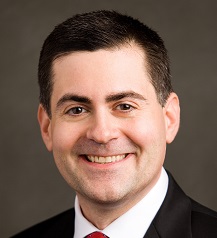By Bob Allen
Proclamations and public gatherings aside, racism is not gone from the Southern Baptist Convention, says the convention’s top spokesman for moral and public-policy concerns.
 “Racism is alive and well within the Southern Baptist Convention and within many of the churches that you will find yourself serving,” Russell Moore, president of the SBC Ethics and Religious Liberty Commission, said in a Nov. 3 lecture at Southeastern Baptist Theological Seminary in Wake Forest, N.C.
“Racism is alive and well within the Southern Baptist Convention and within many of the churches that you will find yourself serving,” Russell Moore, president of the SBC Ethics and Religious Liberty Commission, said in a Nov. 3 lecture at Southeastern Baptist Theological Seminary in Wake Forest, N.C.
Moore said today’s racism looks different from that of the slaveholders who founded the convention in 1845 or the segregationists of the 1950s.
“Unlike your grandparents, who would have had people honestly stand forward and say ‘I do not want that baptistery to be troubled by someone of another ethnicity,’ most people are too ashamed to say that now,” Moore said. “They will find another issue. They will look for another place of vulnerability, and they will attack it without mercy.”
Moore’s remarks stood in concert with a Nov. 4 “Conversation on Race in America” featuring leaders of the SBC and historically black National Baptist Convention, USA, in Mississippi.
“You say racism has been so paramount in our state, now God has, through providence, decided that He’s going to start a movement in the same state to get it right,” Jerry Young, president of the National Baptist Convention and pastor of New Hope Baptist Church in Jackson, Miss., told NBC affiliate WMC Action News 5.
SBC President Ronnie Floyd, pastor of Cross Church in Northwest Arkansas, said pastors from across the country “conversed on the issue of racism in America, what the church can do, where we are, the pain of the past as well as the hope for the future.”
This past March the ERLC held a two-say summit titled The Gospel and Racial Reconciliation in Nashville, Tenn., in response to racial tension rising in cities across the country over allegations of police brutality against African-American men. In his address, Moore said race is not just a cultural, political or social issue but a “gospel issue” for the local church.
“The fundamental problem that we have when it comes to this issue in the American church — even when we understand that there is a problem — is that those of us who are white, born-again Christians tend to assume that the Body of Christ is white with room for everybody else,” Moore said. “White people are normal, and the others that we minister to are ethnic.”
In his lecture at Southeastern, Moore said any pastor “who genuinely believes that the gospel breaks down barriers and the gospel brings about genuine brotherhood, sisterhood” is going to face opposition.
“The question is whether or not you are a hireling of the meanest and most aggressive people in your community or whether or not you are a servant of Jesus Christ, who will stand up and say ‘Come to me, all you who are weary and heavy laden, and I will give you rest,’” he said. “That’s the question.”
In 2008 the Southern Baptist Convention, the nation’s second-largest faith group behind Roman Catholics, sat out a major conference called Celebration of a New Baptist Covenant spearheaded by former President Jimmy Carter with support from President Bill Clinton.
Frank Page, president of the SBC Executive Committee dismissed the confab as a “smokescreen leftwing liberal agenda that seeks to deny the greatest need in our world, that being that the lost be shown the way to eternal life through Jesus Christ, our Lord.”
Moore, then a professor and administrator at Southern Baptist Theological Seminary, termed the effort “voodoo ecumenism.”
“The unity of which news reports speak is a unity based on social action and ethical engagement,” Moore said in an editorial published by Baptist Press. “Even apart from questions of [Clinton’s] personal ethics and about the long-ago debates over alleged high crimes and misdemeanors, what about the official social agenda of the former president? This is, after all, a man who vetoed legislation protecting unborn infants from partial-birth abortion, and then blamed his abortion-rights ideology on what he says he learned from his former pastor at a Little Rock Southern Baptist congregation.”
Supported by other Baptist groups including the Cooperative Baptist Fellowship and American Baptist Churches USA, the New Baptist Covenant has moved beyond mass meetings to “covenants of action” uniting black and white Baptists across the country through worship, fellowship and service in their local communities.
One of the first covenant partnerships, linking Kirkwood Baptist Church and Harrison Avenue Missionary Baptist in St. Louis, began in 2008 after an African-American activist barged into a city council meeting and killed two police officers and three city officials before authorities shot him to death. The relationship helped prepare both congregations for the turmoil in Ferguson, Mo., following the police shooting death of black teenager Michael Brown that gained national attention in 2014.
Their major collaboration is “Hands on Kirkwood,” a one-day mission blitz that draws hundreds of volunteers to spend a day serving those in need through projects such as yard work, home repairs, winter car checkups and safety repairs, electronics recycling and a Winter Clothing and Toy Store. Nonperishable food and baby items are also collected to donate to local organizations.
